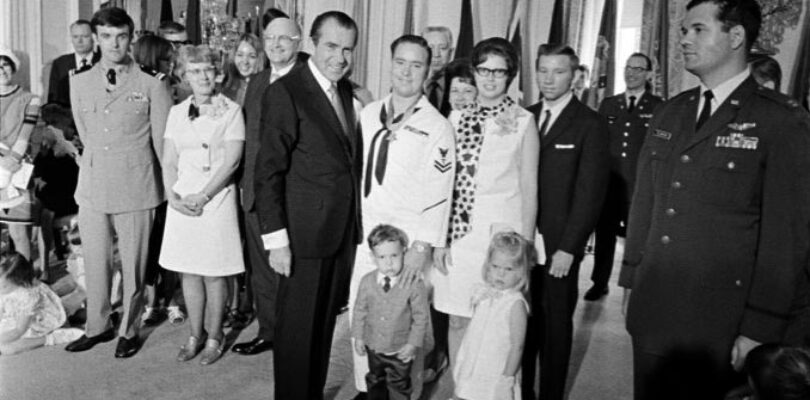There was no such thing as a Mobile Army Surgical Hospital in the United States Marine Corps during the Korean War… or in Vietnam. Instead, every Marine unit that ventured out on patrol was accompanied by a U.S. Navy corpsman universally known as “Doc.”
Although unarmed, the willingness with which these field medics risked their lives to save the riflemen beside them made them widely respected as “honorary Marines.” Their sacrifice on the battlefield often took the form of throwing their bodies over enemy hand grenades, for which many received posthumous Medals of Honor. One such corpsman, Donald “Doc” Ballard, typified that sacrifice… with a rare twist.
Born in Kansas City, Missouri on Dec. 5, 1945, Ballard attended North Kansas City High School and then set his ambitions on dentistry and surgery. Unable to afford the higher education in the civilian world, he enlisted in the Navy on Dec. 27, 1965.
After serving as a hospital corpsman in Memphis, Tennessee, he trained with the Marines at Camp Lejeune, North Carolina, before shipping out to Vietnam in December of 1967 as a member of Company M, 3rd Battalion, 4th Regiment 3rd Marine Division.
By May 1968, it had been several months since the communist Tet Offensive, with the attack slowly petering out.
The Viet Cong in the area had suffered devastating casualties, but had been replaced by fresh regular troops of the North Vietnamese People’s Army (PAVN or NVA). Fighting, therefore, had flared up anew in what the Americans called “Mini Tet,” the last major battle of which was fought at Dai Do between April 30 and May 3.
May 16 saw Company M on a sweep and moving to join up with other elements of the 3rd Battalion when two Marines collapsed from the heat.

Ballard quickly treated them, evacuated them from the nearest landing zone and was just rejoining the company when it came under ambush by a large NVA force armed with small arms and mortars.
Marine casualties swiftly mounted and Ballard was in the middle of it, rushing back and forth across the fire-swept terrain to administer medical assistance and move each casualty to whatever cover he could spot.
One Marine’s wounds were particularly severe and after doing what he could for him, Ballard called for four Marines to help carry their comrade in arms off to a place of relative safety.
It was at that point that an NVA soldier emerged from his concealed position, threw his grenade at the small conclave of Marines and fired on them. Seeing the grenade fall nearby, Ballard had about two seconds in which to react, but for him there was no question as to what it would be. Shouting a warning to the others, he threw himself on the explosive.
Incredibly, the grenade failed to detonate.
Ballard then picked it up and threw it as far as he could — at which point it went off, too far to harm its intended targets.
Ballard calmly resumed his task on other wounded over the next few days’ continuing fighting until the NVA disengaged to lick their own wounds.
In July 1968 Doc’s remarkable run of luck ran out as he was wounded and evacuated to hospital on Okinawa. In September he returned to work at the Memphis Naval Hospital. Meanwhile, he had been recommended for the Navy Cross for the act of selfless sacrifice that he’d survived, but it was subsequently upgraded.
On May 14, 1970, Ballard’s appeared in the White House, where President Richard M. Nixon awarded him the Medal of Honor.
Later that year, Ballard switched services, accepting a commission in the Medical Service Corps of the Kansas Army National Guard. In 1998 he rose to colonel and retired from military service in 2000. In 2001 he was inducted into the Kansas National Guard Hall of Fame. In 2015 one of his sons, Adam, enlisted in the Marines.
Looking back on the two seconds that had made the difference between life and death to him and the Marines with him, “Doc” Ballard dismissively remarked: “I don’t feel like I did anything spectacular. I was wanting to do the right thing, but in all honesty, I was scared… I paid attention to my surroundings and to survival skills as best I could. I just did my job.”

